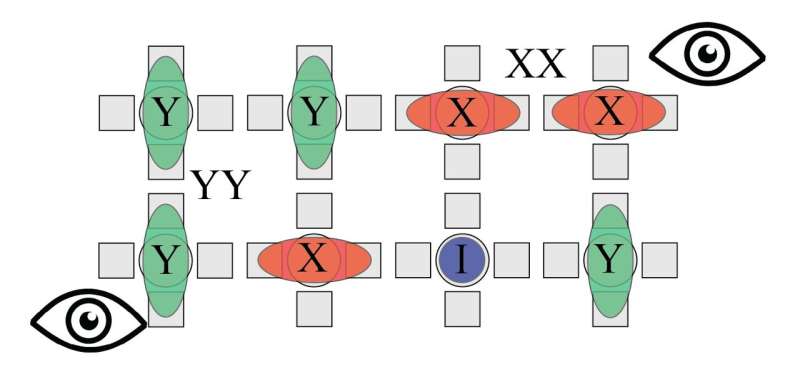Science
New Single-Spin Qubits Set to Revolutionize Quantum Processors

Quantum computing is advancing with the introduction of a new type of qubit designed to simplify the scaling of quantum processors. Researchers from QuTech and Delft University of Technology have developed single-spin qubits that operate using baseband electrical signals, as detailed in their recent publication in Physical Review Letters on November 20, 2025.
Currently, quantum computers leverage the principles of quantum mechanics to perform complex computational tasks that classical computers struggle with. Unlike traditional bits, which exist in binary states, qubits can exist in multiple states simultaneously, allowing for more complex processing capabilities. The challenge lies in the effective manipulation of these qubits, particularly with the common use of high-frequency electrical signals that can generate interference and complicate the scaling of quantum systems.
The new qubit, referred to as GS2, is based on individual hole spins within semiconductor nanostructures. These qubits can be operated using simpler baseband signals, which significantly reduces the complexity of quantum processor design. According to Maximilian Rimbach-Russ, the first author of the study, the team aimed to create a solution that mirrors the simplicity found in classical transistors, making quantum computing more practical.
“By engineering the qubit’s properties so that its two states are nearly identical in energy, we effectively ‘freeze’ the motion when no operation is performed,” Rimbach-Russ explained. This innovation allows the qubit to remain stable until a control pulse is applied, eliminating the need for fast, synchronized control signals typically required in spin qubit devices.
Simplifying Quantum Computing Hardware
The most significant advantage of the GS2 qubit is its ease of operation. Researchers indicate that simple, short electrical pulses are sufficient to control a quantum processor constructed from these qubits. This negates the necessity for complex microwave signals and timing mechanisms, which are often involved in traditional quantum computing setups.
“The conditions for operating these qubits are ideal,” Rimbach-Russ noted. “They can be controlled much faster than existing alternatives, paving the way for more scalable semiconductor quantum processors.” Given that the design relies on semiconductors, manufacturers could potentially fabricate processors using existing electronics production methods.
While the theoretical groundwork has been laid, Rimbach-Russ acknowledges that there are still challenges to address. Variability within semiconductor materials can impact device performance, and the team is diligently working to enhance both the designs of the qubits and the quality of the materials used.
Next Steps for Quantum Processor Development
The research team is now focused on developing a full-scale quantum processor based on the GS2 architecture. “Although this concept sounds straightforward, our journey is just beginning,” Rimbach-Russ added. “Our experimental collaborators are critical in bringing these qubits to life.”
The implications of this research could be profound for the future of quantum computing. By addressing the complexities associated with current qubit technologies, the GS2 qubit design may lead to more efficient quantum processors, ultimately expanding the capabilities and applicability of quantum computing across various fields.
As advancements in quantum technology continue, the potential for solving complex problems previously deemed insurmountable by classical computers becomes increasingly tangible. The work of Rimbach-Russ and his colleagues represents a significant step forward in making quantum computing more accessible and practical for broader use.
-

 Lifestyle4 months ago
Lifestyle4 months agoLibraries Challenge Rising E-Book Costs Amid Growing Demand
-

 Sports4 months ago
Sports4 months agoTyreek Hill Responds to Tua Tagovailoa’s Comments on Team Dynamics
-

 Sports4 months ago
Sports4 months agoLiverpool Secures Agreement to Sign Young Striker Will Wright
-

 Lifestyle4 months ago
Lifestyle4 months agoSave Your Split Tomatoes: Expert Tips for Gardeners
-

 Lifestyle4 months ago
Lifestyle4 months agoPrincess Beatrice’s Daughter Athena Joins Siblings at London Parade
-

 Science3 months ago
Science3 months agoSan Francisco Hosts Unique Contest to Identify “Performative Males”
-

 World4 months ago
World4 months agoWinter Storms Lash New South Wales with Snow, Flood Risks
-

 Science4 months ago
Science4 months agoTrump Administration Moves to Repeal Key Climate Regulation
-

 Business4 months ago
Business4 months agoSoFi Technologies Shares Slip 2% Following Insider Stock Sale
-

 Science4 months ago
Science4 months agoNew Tool Reveals Link Between Horse Coat Condition and Parasites
-

 Sports4 months ago
Sports4 months agoElon Musk Sculpture Travels From Utah to Yosemite National Park
-

 Science4 months ago
Science4 months agoNew Study Confirms Humans Transported Stonehenge Bluestones









